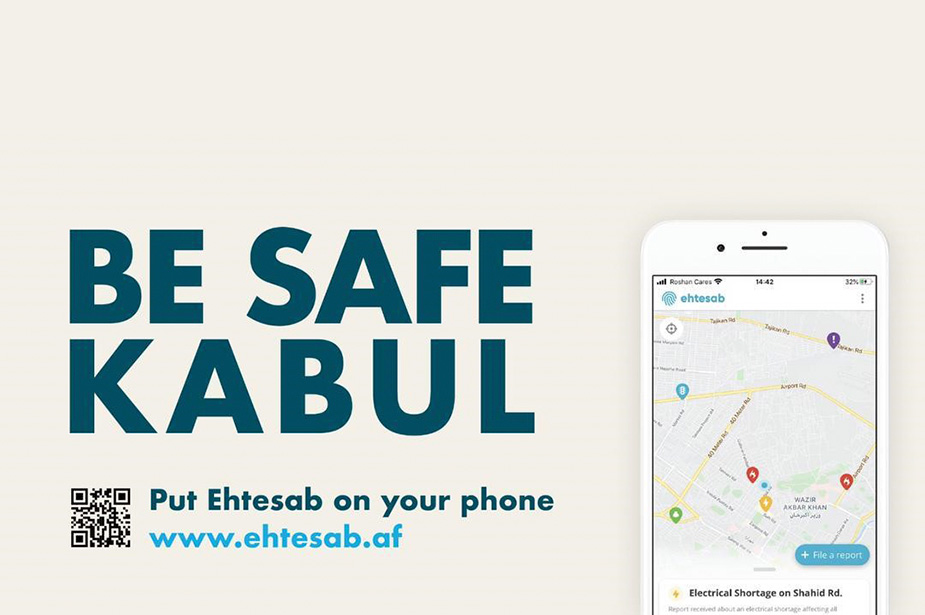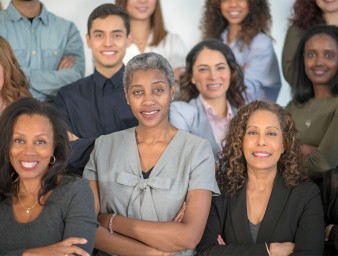Sara Wahedi is saving lives with her mobile app

Technologist and human rights activist Sara Wahedi, 28, has made security and safety her life’s mission. She created the digital app, Ehtesab — a verified, monitored platform that shares real-time emergency information to Kabul residents in Afghanistan. This digital app has become a lifeline, especially for women and girls, since the Taliban took control of the country in 2021, as they can get reliable information about the danger around them. Wahedi is an Afghan national who moved to Canada at the age of six but returned to the country over the years for work. While she’s not working full-time managing her lean start-up from New York, Wahedi is attending Columbia University where she is working on a dual degree in data science and urban studies. During a break between a virtual meeting with her young staff in Kabul and classes, she shared how she decided to use digital technology to protect people, especially women and girls from violence in Afghanistan.
Why did you decide to create Ehtesab?
We had daily gunfire and daily explosions. On 8 May 2018, I was walking home from work from my job at the President's office in Kabul and about a block away from my house, there was a little bit of a commotion about someone with a vest on the street, and within seconds after that, there was an explosion. And then it was just subsequent explosions after that for the next twelve hours, right outside of my home. We later found out that it was an ISIS attack on an Indian visa office. And a light bulb turned on in my head and I thought that for a country that has been crippled by warfare, why doesn’t a tool that can alert people about attacks exist? And that's the day when I started to think about how to solve this problem. Technology knows no bounds and that’s the wonderful thing about it.
Is there a meaning behind the app’s name?
Ehtesab is a cognate use of words that loosely stem from Dari and Pashto. It means transparency, accountability, and responsibility. It was important that the word could be relatable to everyone.
How does the app work?
It provides real-time alerts to Kabul residents on everything from electricity outages to explosions, public demonstrations, and gunfire. The app maps these incidents and updates them by sending to a user’s phone after they have been verified. There is a large interest within the youth population who have been using the application who send us reports about what's happening in their vicinities. We're very direct, very concise, but we provide information that we know will assist women. We focus a lot on the monitoring of roadblocks because that's one of the difficulties for women right now is access to safe movement. So, if there is anything alarming in terms of traffic, road closures, blocks, we try to get those alerts out as soon as possible.
Who works with you?
My entire fantastic, amazing team are all based in Afghanistan and 50 percent are women. We all believe in the fundamental human right to access information. And it's a right that very few people know that is entrenched in the UN Declaration of Human Rights. And it's one that we are passionate about because we know that access to information is really an important crux for decision making, especially at the community level. I truly believe that some of the most sustainable and most impactful projects are ones by those who have lived experiences in those areas, and ones who can also really understand and have a stake in in that technology. My team feels the same.

The digital app Ehtesab was created by Sara Wahedi to protect people from dangers in Kabul, Afghanistan. © Ehtesab/Sara Wahedi
What makes this app unique compared to other information sharing apps?
The application is much simpler to use and available to everyone. We are also being very strategic about the usage. It's really been grassroots word of mouth with family members and friends sharing in disseminating the application within themselves. The reason for that is that we had a huge interest before the Taliban take over and then after we didn't know what was going to happen. My entire team was working from home. We could no longer access our office and we had to think strategically about how we wanted to expand the application. So, we knew that there was a huge interest, but because this is so grassroots, and we don't have a large budget, we had to be strategic. We have been told that if we launched a national awareness campaign, there would be a huge flurry of interest in the application. But the Taliban could shut us down. They could find our team. They could start harassing people who have the application.
Have you been able to see the real impact of the app?
People have shared their amazing stories about how the application has either helped them stay away from a difficult situation or the necessity to expand it. For instance, there was an explosion in February at the Ministry of Foreign Affairs in Kabul, and we were all at home. We were all working regular office hours, but suddenly my colleague said there had been three alerts sent to our database about the explosion. Suddenly we have three users who were in the building or around the building saying there's an explosion that just happened, and they wanted to share the details, and we were able to verify that quickly because suddenly we had three different reports sharing the same information. It was a really big success for our team because we saw Afghans feeling comfortable and safe to share important information with us and to keep others safe. And with those reports, we were able to verify with journalists on the ground.
What has technology provided for women and girls in Afghanistan?
The digital space has done so much for women, especially following the Taliban takeover.
On Facebook and Instagram, the world was seeing Afghan women activists, and these were everyday women, students, entrepreneurs, and teachers. In Kabul, women were able to rise up in the streets and stand up to the Taliban. These faces weren’t seen before by the world on social media. Women have been using the digital world as a as a vehicle of change, of frustration, of vying for their fundamental human rights. Digital technology has given women who may not be able to do so otherwise the ability to speak out and have their voices heard.
*This story is part of this year’s International Women’s Day, which recognizes the critical contributions of women, girls and feminist movements who use the digital space to connect, mobilize, and drive social change.



